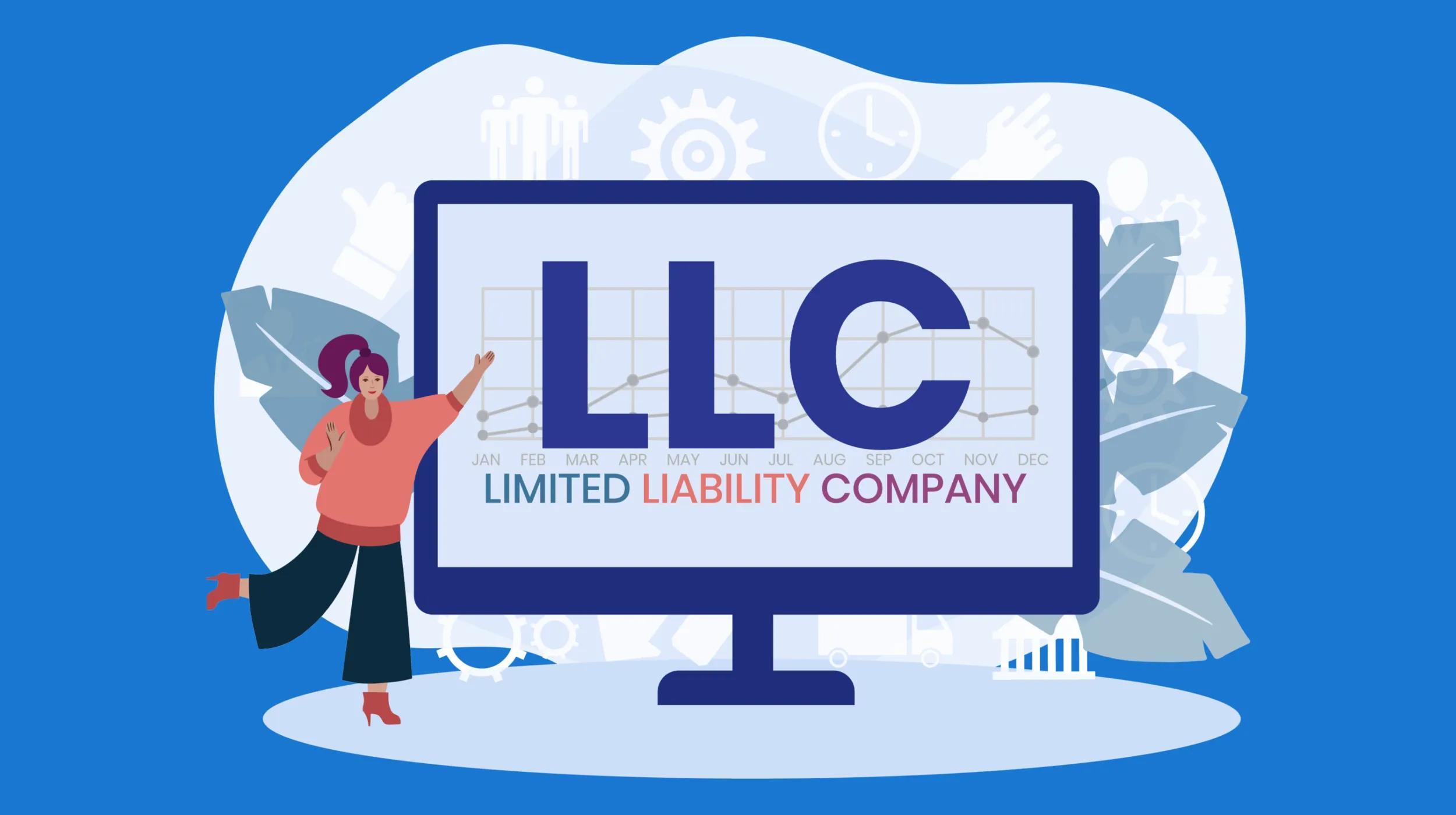Planning for time off can be a challenge when you run your own business. It can feel next to impossible to step away and, after all, your company is your creation. You were likely integral in every single decision since its conception — which is a lot of responsibility to take on.
And though your company may be more established now, it's still tough to get yourself out of that startup mode mindset. Telling yourself, “I need to hustle day and night” to make this work isn’t easy to shake off.
A survey conducted in 2019 reported that 39% of workers said they feel guilty about taking time off work — amounting to two out of five workers.

But working until you collapse isn't a good long-term business strategy. Nor is skipping out suddenly and leaving your team hanging.
Thankfully, there is a healthy way to take time off while keeping your team and clients in the loop. It is possible to unplug during your time away. And no, the solution doesn’t involve magic spells.
You just need to be more strategic when planning for time off.
To help you coordinate a vacation you most deserve, we’ll be answering some of your most frequently asked questions about planning for time off. We’ll also offer tips for ditching the vacay guilt and how to enjoy your time away.
Answering common questions about planning for time off
Preparing for a vacation as a business owner or entrepreneur can be stressful. With that in mind, we’ve answered some of the most commonly asked questions about planning for time off.
1. When is the best time to plan a vacation?
There’s a lot to weigh here, so we’ve broken this answer into three parts.
- Opt for slow times. Your first order of business here is to identify the periods of the year that are slower for your company. This can take a lot of different shapes and might look differently for businesses in various parts of the world.
- Take a look at the weather. What is it usually like during the time you’re planning for a vacation? If it aligns with ideal travel weather — great. If not, and your slow time lands smack dab in the middle of tornado season, you might be best served by picking another time.
- Factor in your kid’s vacation times as well. If you have children, you’ll want to keep this tip in mind. The times kids are typically out of school are also usually when everyone is traveling and the popular destinations are overcrowded and overbooked, however.
Ultimately, planning for time off has a lot of variables but you’ll want to schedule it when your business is not busy. You’ll also want to note when your family is available for the smoothest vacation planning process.
2. When should I tell my clients I’m going on vacation?
As soon as you have a time frame pinned down for your vacation, you should let your team, employees and/or clients know.
Typically, a month out is a good amount of notice.
You should then also send out periodic reminders of the upcoming vacation.
For example, you can send a reminder notice after wrapping up an email discussing another matter. Do this by creating an addendum that goes at the bottom of the message and have it read something like:
“Just as a reminder, I will be out of the office from X date to X date and will be unavailable during that time. If there's anything that needs my direct attention before then, please let me know ASAP. While I’m away, please send your questions to NAME at CONTACT INFO.”
Keep this message template handy when planning for time off and customize it any way you like when it’s time.
Alternatively, you can choose to set up an email autoresponder with a professional email address from GoDaddy (which is included in Microsoft 365). Use your domain name and enjoy 50 GB of email storage, plus online-only access to Microsoft products like Word, Excel and PowerPoint.

3. How can I best prepare my employees for my absence?
Planning really is key here. The more notice you can give your employees or team members, the better. After notifying them of your upcoming absence, spend some time brainstorming some possible situations that could arise while you’re gone.
Once you know what could go wrong, you can then create contingency plans for these theoretical situations.
Client server goes down? Create an action plan for your team — that doesn’t involve contacting you — to solve the issue.
The new, potentially very important prospect makes contact? Brief your most trusted manager or team member on how to handle the situation.
Also, create a general outline for escalation procedures should an emergency occur. This could include:
- What constitutes an emergency
- Who needs to be contacted
- What steps need to be completed before you’re contacted
Anticipating all of these points will make your life easier when planning for time off.
4. How can I create healthy boundaries for when I’m on vacation?
It’s impossible to truly enjoy your time away if you’re checking your phone constantly or fielding email messages. That’s not time off — that’s just doing work from a remote location.
To avoid this, set the expectation within your team and clients that you will be unavailable for this period.
It’s also equally important to make an agreement with yourself that you will actually unplug during this trip.
When you’re a business owner or entrepreneur, it’s natural to be concerned about what’s going on with work while you’re gone. But obsessing over it, constantly checking in, or making yourself too available negates the purpose of the vacation.
Try turning off notifications and setting your status as “Away” or “On Vacation” on messaging apps. You can also set up an email autoresponder to help establish healthy boundaries.
Related: 12 tech shortcuts to relieve work-life stress
5. How can I best deal with work emergencies while on vacation?
Assuming you are only contacted in actual emergencies, how you deal with them depends on your line of work.
Typically, it might mean you’ll need to make an unexpected phone call with your team to provide further direction. It also might mean you’ll need to reassure a client that the situation is being handled.
Oftentimes, simply talking out the situation with your client or employee can help guide them toward a solution — or at least a quick fix that’ll suffice until you get back.
6. I need time off but I feel like I can’t step away. What should I do?
There will never be a perfect, most convenient time to go on vacation. That’s just not how life works, unfortunately.
But what you don’t want to do is wait until you’re too exhausted to plan properly.
Planning for time off takes time to account for contingencies and emergencies so that you can enjoy yourself while you’re away.
If you feel like you need a vacation, you do. After all, we don’t live to work as humans, we work to live. It’s important to remind yourself of that fact, on occasion, even as a booked business owner.
How to take a vacation without feeling stressed

Many of us live in a culture that is steeped in work equating to the value you provide as a human being. And while hard work has many merits, taking time off shouldn’t lead to feelings of guilt or unease. Nor should you just skip vacationing altogether because it’s too much of a hassle.
Many people cite vacations as stressful for these reasons. But there is a way to step away — without being preoccupied with what’s going on at work in your absence. Here are the best ways to prepare and leave your stress at home.
Don’t wait until you’re burnt out on vacation
We hinted at this earlier, but it deserves its own mention here too. It’s never a good idea to wait until you’re in the throes of burnout to take a vacation. You’ll be too stressed to enjoy yourself or so exhausted you’ll just want to sleep every day.
Plan vacations when you don’t even feel like you need one. That way, it’ll be a pleasant time to enjoy yourself and you can come backreturnr trip feeling refreshed and recharged — not like you didn’t get to enjoy it.
Related: 18 self-care tips to promote entrepreneur health and wellness
Make a vacation plan and stick to it
Running a business can be tiring, but it’s important not to let that thwart you from fully enjoying your vacation time. It’s tempting to just takeaycation or skips the plan altogether. But it’s actually a good idea to have at least a loose idea of what you’ll be doing while on vacation.
Making the most of your time off will ensure you won’t have any regrets later.
You’ll also get to throw yourself into doing something other than work — wholeheartedly.
There’s no need to micromanage your trip with a detailed itinerary, but a plan of what you’ll do each day is recommended.
Allow for travel time/adjustment time in your schedule
Don’t plan on coming back to work straight from your return flight. That’s just a recipe for disaster and exhaustion. Always try to set aside one extra day after you get home to rest and regroup. This should be your day to readjust to life at home, catch up on chores and get some much-needed rest before you return to business as usual.
Leave someone in charge of day-to-day operations in your absence
When you run a business, it’s easy to pick up the slack here and there or to be way too involved in day-to-day operations.
So let planning for time off be the reason to set up a proper chain of command in your company.
This will make it so that essential tasks are no longer dependent on you. In the long run, you’ll likely find this to be helpful. Plus, you could wind up with more time to invest in growing your company or landing bigger clients.
As for your vacation time, establish your most trusted team member, employee or manager as the one in charge until you return.
Clue everyone in when (and for how long) you’ll be gone
As soon as you know when your vacation will be, put it on the company calendar. If your team uses Microsoft 365, you can easily add this information to a team calendar for all to see. But that’s not enough. You need to actually tell everybody in a direct message, too.
Sending out a company announcement via email will typically suffice. Be sure it includes both your last day of work and the day you’ll be returning — as well as who everyone’s point of contact should be while you’re gone.
And you can schedule reminder emails to go out two weeks before, one week before, and then the day before. This might sound like too much, but it really can ensure that everyone who needs to report to you about something will do so before the date you’re scheduled to leave.
Related: How to write an effective out-of-office message
Turn off most notifications
Lastly, the best way to truly enjoy your vacation is to unplug for a bit. That means turning off most notifications on your phone — and being good about not manually checking your emails or messages, either.
Messaging apps like Slack offer a snooze feature that allows you to pause notifications for a period you specify. You can also allow people to push a notification to you in case of emergencies. However, you should reserve this only for those team members or clients that you know will respect this boundary.
Next steps
Planning for time off can be a bit scary and so can taking the plunge to go on vacation — especially if you haven’t done so in a while. But there’s no time like the present. And you’ll find you’ll be a more invested business owner upon your return for having taken a break.
And don’t forget, you can keep in touch with important clients, set autoresponder messages, and more with Microsoft 365 from GoDaddy.






